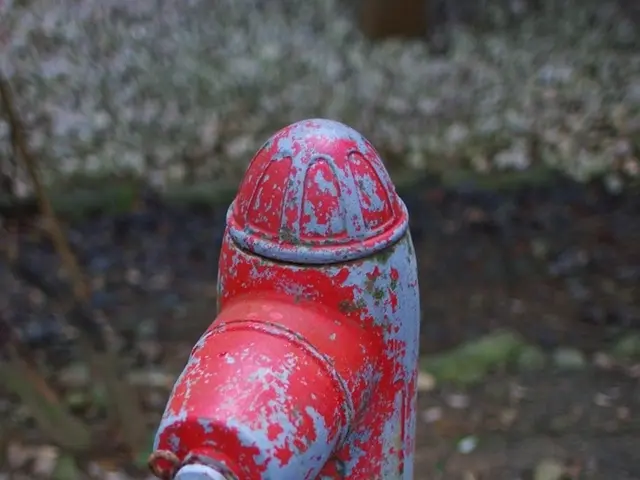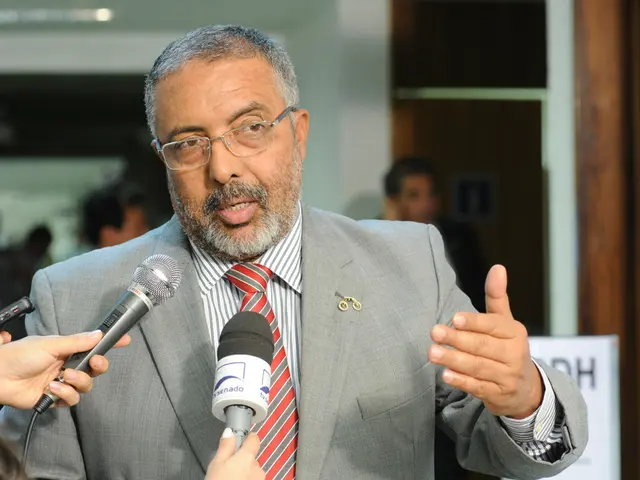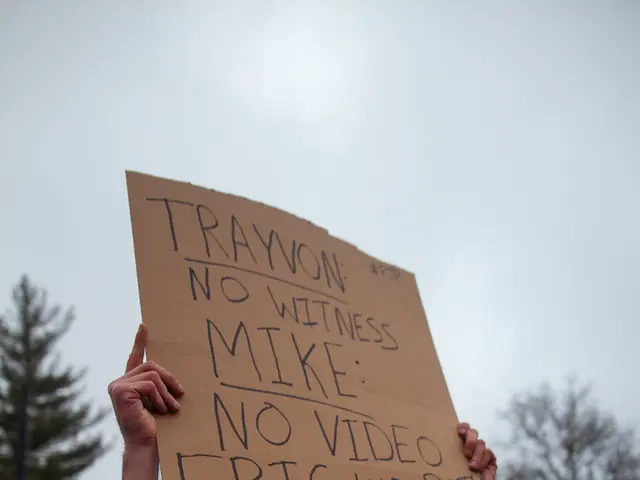In a recent interview, Trump expresses uncertainty about his support for due process rights.
President Trump Tests Due Process Waters
West Palm Beach, FL - In a blunt interview with NBC's "Meet the Press," President Trump expressed ambiguity about the universal application of due process rights for U.S. citizens and non-citizens alike. The 5th Amendment, which outlines these protections, guarantees individuals specific legal procedures to safeguard their rights.
The President's comments come at a time when his controversial approach to immigration and his skepticism towards due process have drawn criticism from countless quarters. A prime example is the case of Kilmar Abrego Garcia, a Salvadoran-born man mistakenly deported to El Salvador and jailed without communication. Trump claims Abrego Garcia is associated with a transnational gang, but the Supreme Court has ordered the administration to return him to the U.S.
When asked during the interview whether both citizens and non-citizens deserve due process protections as laid out by the 5th Amendment, the President replied, "I don't know. I'm not a lawyer." However, he emphasized, "I have brilliant lawyers ... and they are going to obviously follow what the Supreme Court said." He added that he aims to deport "some of the worst, most dangerous people on Earth," but courts pose obstacles to achieving this goal.
Another hot topic during the interview concerned Trump's aspiration to make Canada the "51st state." Despite Trump's previous threats, he admitted that military force would likely not be necessary for Canada's incorporation. Nevertheless, he was less certain about the viability of his calls for the U.S. to take over Greenland without military intervention.
As President Trump's presidency enters its 100th day, his efforts to enact his agenda face stiffer headwinds. However, he insists that he remains committed to fulfilling his promises to American voters. But what did he have to say about the possibility of a third term? Well, he hinted that there is significant support for the idea, stating, "I'm looking to have four great years and turn it over to somebody, ideally a great Republican."
Other highlights of the interview touched on topics like the economy, his pick for national security advisor, and his potential future successor. Regarding his cryptocurrency investments, Trump insisted that he isn't pocketing profits and instead views these endeavors as a strategic move for the future of the U.S. as China trails behind.
With more to unpack in this drama-filled interview, it's no wonder seasoned political analysts continue to scrutinize Trump's every word and action.
- The President's stance on due process has been a point of contention, particularly in the context of immigration.
- California, as a state with a significant immigrant population, may be closely watching Trump's immigration policy and due process stance.
- Criminal justice organizations are closely monitoring the President's comments about due process, as they could potentially impact the rights of non-citizens in the U.S.
- The government's ability to enact policy-and-legislation changes, such as modifications to immigration law and due process rights, is a complex issue whose resolution may not be straightforward.
- Despite the President's aspirations, adding Canada as the 51st state would likely require extensive political negotiations and legislative action.
- The technology industry is following the President's views and steps regarding cryptocurrency investments with interest, as they could influence the future of digital finance and competition.
- As the President continues his term, war-and-conflicts, general-news, and crime-and-justice issues will undoubtedly factor into his decisions and public discourse.








